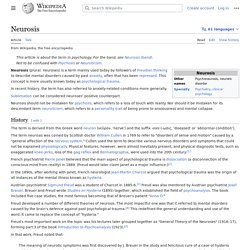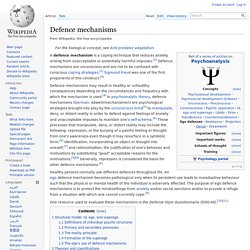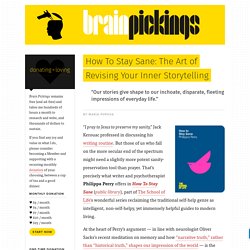

Dr. Dan Siegel Defines the Mind. Freudian Defense Mechanisms - Intro to Psychology Video. So today we're going to talk about Freudian defense mechanisms and this is basically what Freud thought that you do when you're faced with stress.

And he thought that stress and anxiety are basically caused by your three parts of your personality fighting with each other. He thought that there was basically an id, an ego and a superego, and that your id has lots of impulses and things it wants to do, it's kind of childish, it doesn't really have self control. Your superego is all self control so it's always limiting what the id wants to do, and your ego is the conscious part of you that has to deal with this conflict. List of cognitive biases. Systematic patterns of deviation from norm or rationality in judgment Cognitive biases are systematic patterns of deviation from norm and/or rationality in judgment. They are often studied in psychology, sociology and behavioral economics.[1] Although the reality of most of these biases is confirmed by reproducible research,[2][3] there are often controversies about how to classify these biases or how to explain them.[4] Several theoretical causes are known for some cognitive biases, which provides a classification of biases by their common generative mechanism (such as noisy information-processing[5]).
Gerd Gigerenzer has criticized the framing of cognitive biases as errors in judgment, and favors interpreting them as arising from rational deviations from logical thought.[6] Explanations include information-processing rules (i.e., mental shortcuts), called heuristics, that the brain uses to produce decisions or judgments. Belief, decision-making and behavioral[edit] Neurosis. Symptoms and causes[edit] There are many different neuroses: obsessive–compulsive disorder, obsessive–compulsive personality disorder, impulse control disorder, anxiety disorder, hysteria, and a great variety of phobias.

According to C. George Boeree, professor emeritus at Shippensburg University, the symptoms of neurosis may involve: Neurosis may be defined simply as a "poor ability to adapt to one's environment, an inability to change one's life patterns, and the inability to develop a richer, more complex, more satisfying personality. Jung's theory[edit] Carl Jung found his approach particularly effective for patients who are well adjusted by social standards but are troubled by existential questions. I have frequently seen people become neurotic when they content themselves with inadequate or wrong answers to the questions of life.
Jung saw collective neuroses in politics: "Our world is, so to speak, dissociated like a neurotic. " Defence mechanisms. A defence mechanism is a coping technique that reduces anxiety arising from unacceptable or potentially harmful impulses.[1] Defence mechanisms are unconscious and are not to be confused with conscious coping strategies.[2] Sigmund Freud was one of the first proponents of this construct.[3] Healthy persons normally use different defences throughout life.

An ego defence mechanism becomes pathological only when its persistent use leads to maladaptive behaviour such that the physical or mental health of the individual is adversely affected. The purpose of ego defence mechanisms is to protect the mind/self/ego from anxiety and/or social sanctions and/or to provide a refuge from a situation with which one cannot currently cope.[9] One resource used to evaluate these mechanisms is the Defense Style Questionnaire (DSQ-40).[10][11] Structural model: Id, ego, and superego[edit] Emotional First Aid. Nathaniel Branden: The Psychology of Pleasure 2 of 2. Nathaniel Branden: The Psychology of Pleasure 1 of 2. A Guide to Happiness: Alain de Botton Shows How Six Great Philosophers Can Change Your Life. How To Stay Sane: The Art of Revising Your Inner Storytelling. “I pray to Jesus to preserve my sanity,” Jack Kerouac professed in discussing his writing routine.

But those of us who fall on the more secular end of the spectrum might need a slightly more potent sanity-preservation tool than prayer. That’s precisely what writer and psychotherapist Philippa Perry offers in How To Stay Sane (public library), part of The School of Life’s wonderful series reclaiming the traditional self-help genre as intelligent, non-self-helpy, yet immensely helpful guides to modern living. At the heart of Perry’s argument — in line with neurologist Oliver Sacks’s recent meditation on memory and how “narrative truth,” rather than “historical truth,” shapes our impression of the world — is the recognition that stories make us human and learning to reframe our interpretations of reality is key to our experience of life: Our stories give shape to our inchoate, disparate, fleeting impressions of everyday life.
Www.perceptionweb.com/perception/editorials/p6466.pdf. Multiple intelligences...a way to think about our ... The great illusion of the self. (Image: Darren Hopes) As you wake up each morning, hazy and disoriented, you gradually become aware of the rustling of the sheets, sense their texture and squint at the light.

One aspect of your self has reassembled: the first-person observer of reality, inhabiting a human body. As wakefulness grows, so does your sense of having a past, a personality and motivations.